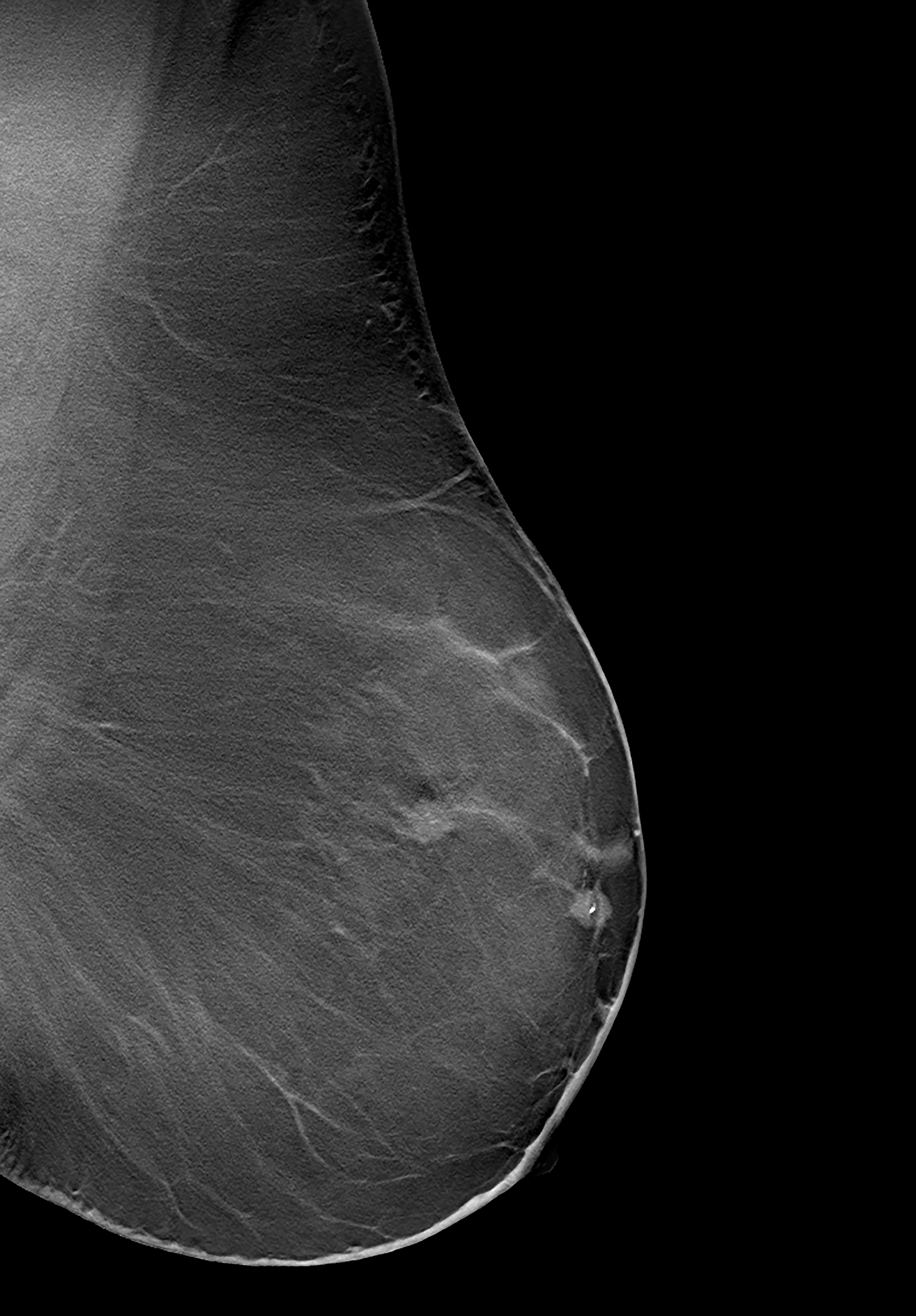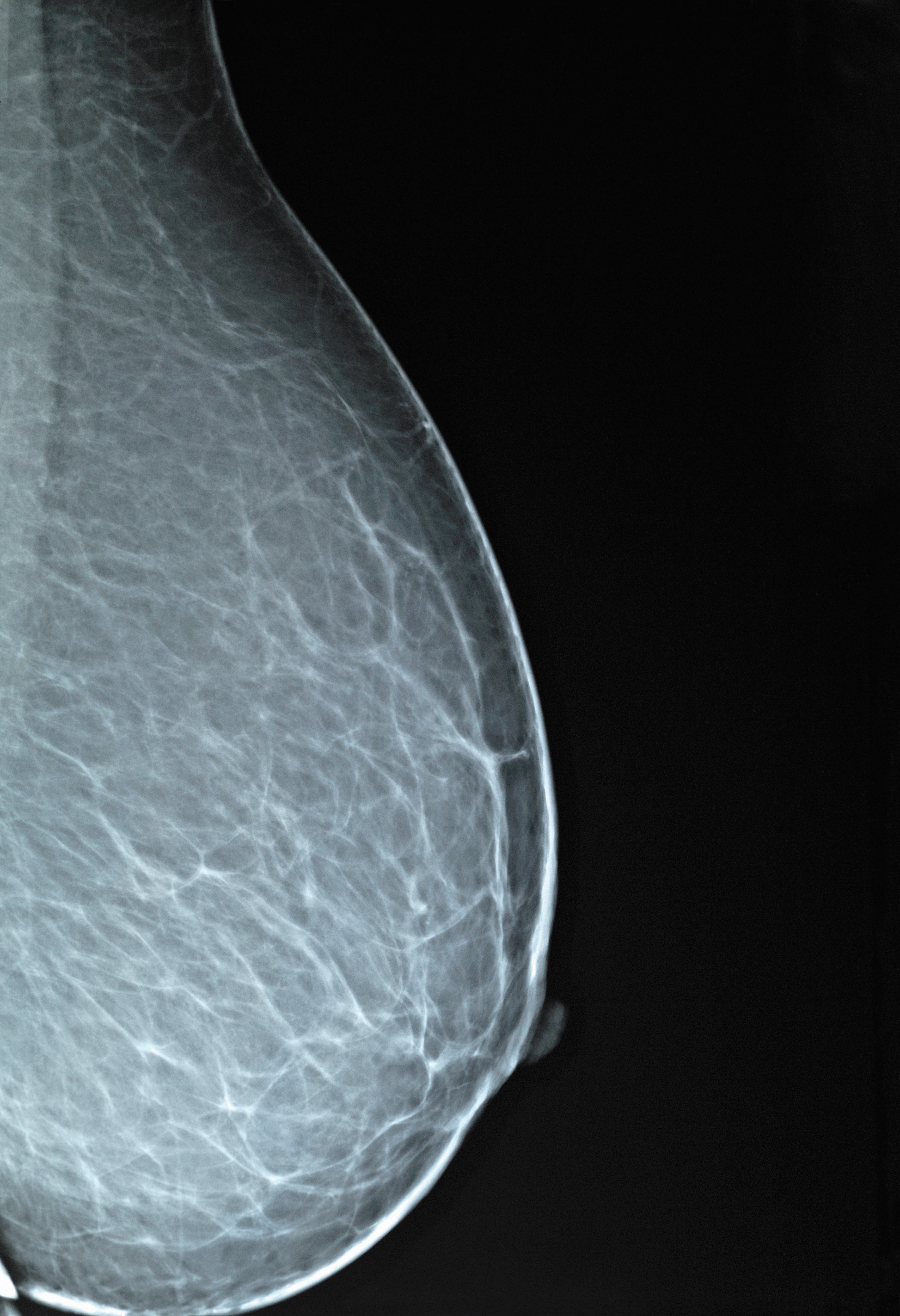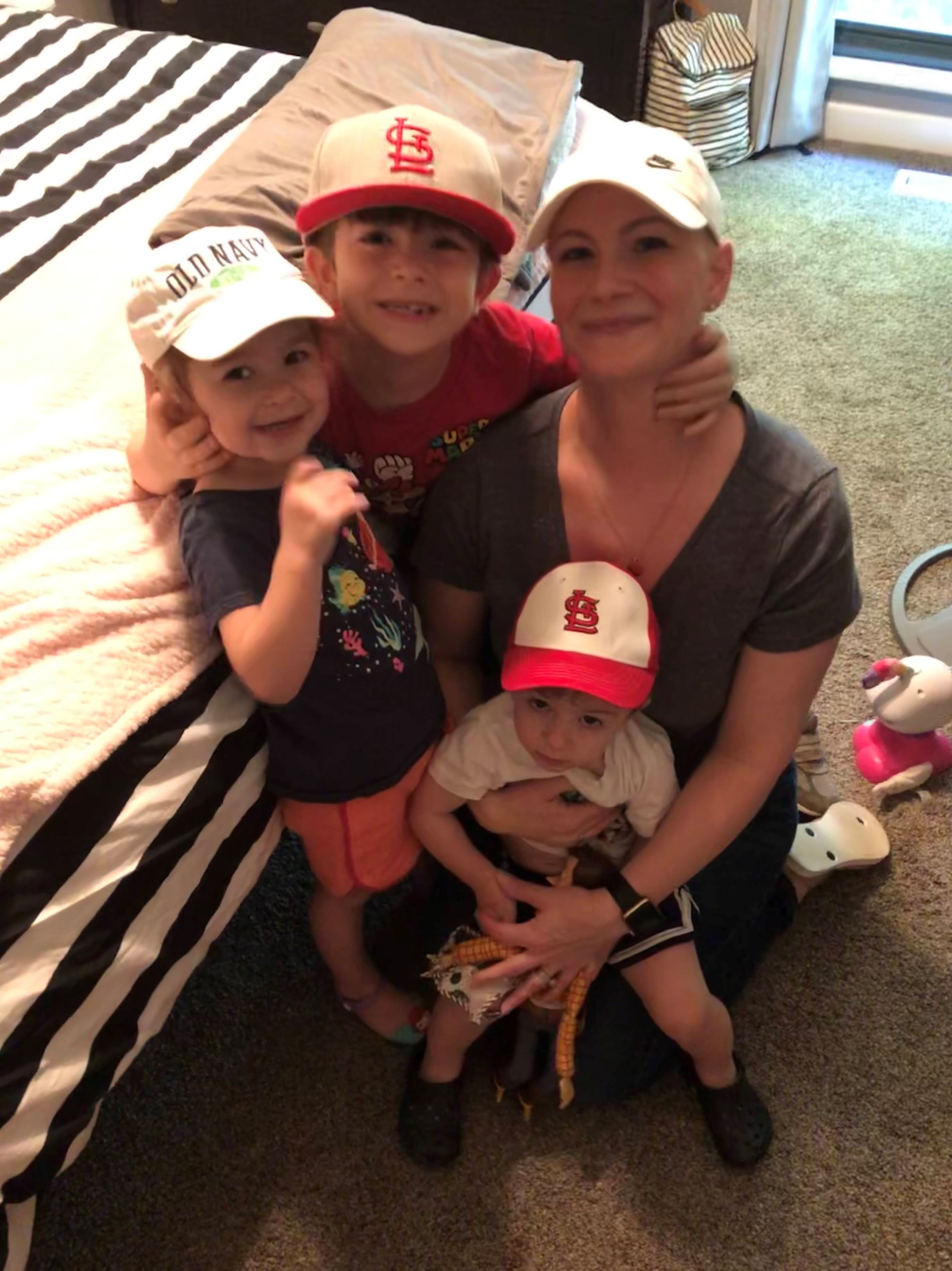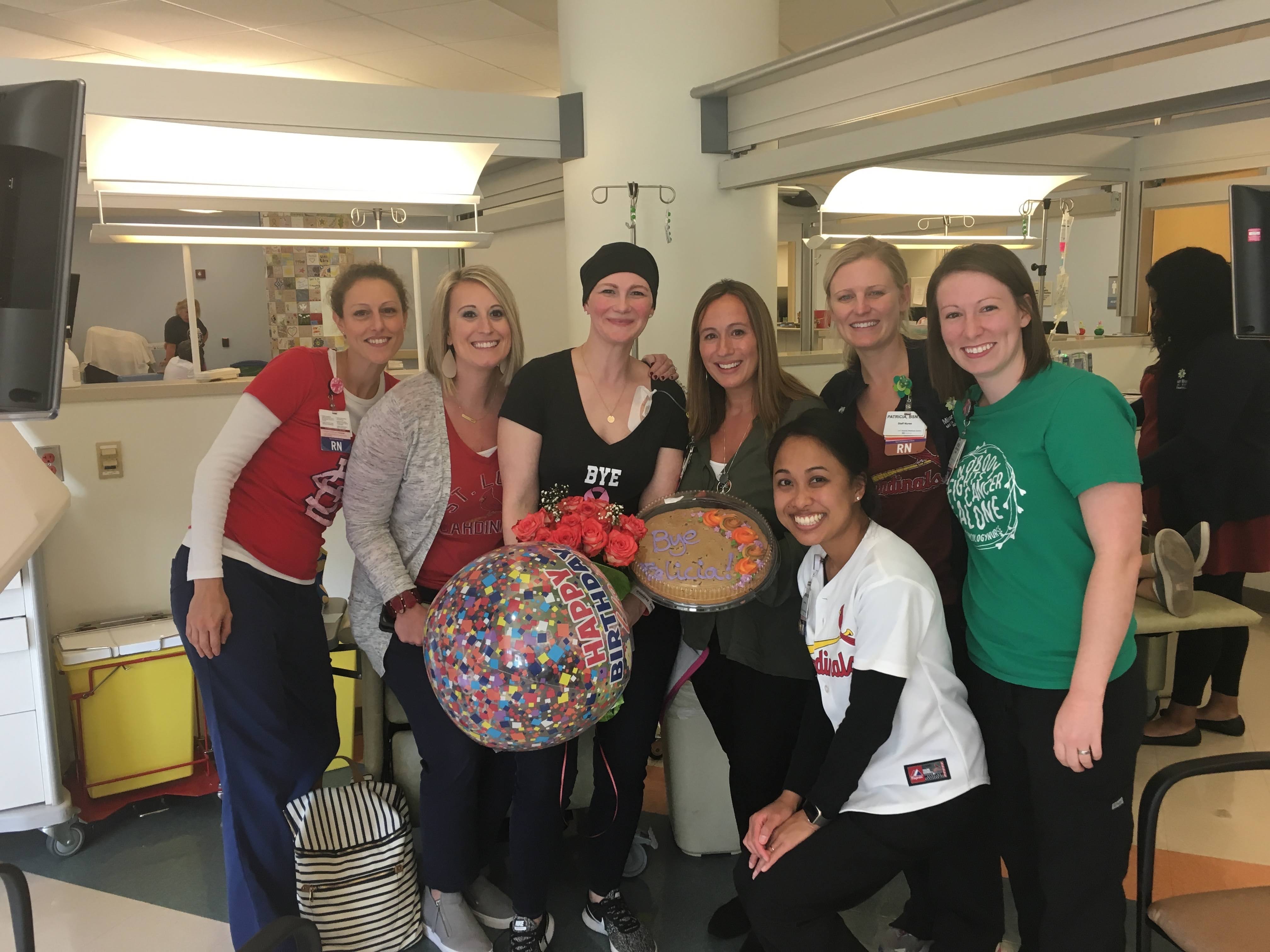In April 2019, Michelle Mondello was breastfeeding her youngest child of three when she noticed a lump in her breast.
Michelle was only 35 years old and had no family history of breast cancer. Because of her age and background, she wasn’t a candidate for regular mammograms. But after a biopsy at the Breast HealthCare Center at Missouri Baptist Medical Center, Michelle was diagnosed with triple-negative breast cancer (TNBC), an aggressive form of cancer that accounts for 10 to 15 percent of all breast cancers.
“My baby saved my life,” Michelle remembers. “Nursing him that night saved my life.”
From discovery to diagnosis
After noticing the lump, Michelle brought her concerns to her longtime doctor, Mark Jostes, MD, a BJC Medical Group ob/gyn, who had delivered each of her three children. Dr. Jostes recalls Michelle’s visit, saying, “My role was in helping make the diagnosis and listening to her concerns. Then, helping to navigate getting her to the right place.”
  While fatty breast tissue is transparent on a mammogram (left), both dense tissue and potential tumors appear white on the images (right), making it harder to distinguish between normal tissue and abnormalities. Those with dense breasts may require supplemental screening tests to detect cancerous changes. While fatty breast tissue is transparent on a mammogram (left), both dense tissue and potential tumors appear white on the images (right), making it harder to distinguish between normal tissue and abnormalities. Those with dense breasts may require supplemental screening tests to detect cancerous changes. |
Michelle had heard stories from women in a Facebook mom’s group who were diagnosed with breast cancer whose concerns were initially brushed off by their doctors. These women were told they were too young to get breast cancer or that they were simply experiencing changes in their breast tissue because they were nursing. “I remember they said they were getting pushed off by their doctors and had to advocate for themselves,” she says. But that was not the case with Jostes. He took her concerns seriously. “He knew this was something to pursue and get checked out,” Michelle says.
Jostes immediately scheduled Michelle for a mammogram and ultrasound. The mammogram didn’t show her tumor because Michelle, like many women her age, had dense breasts, which made it harder to spot cancerous lumps. “It’s kind of like looking for a bird’s nest in a tree with full foliage,” Michelle says. “It’s hard to find the nest with so many leaves.”
But Michelle’s ultrasound revealed the tumor. After a biopsy, she was diagnosed with TNBC in May 2019.
What is triple-negative breast cancer?
TNBC is an aggressive form of breast cancer that more commonly occurs in women under the age of 40. Dr. Melissa Rooney explains, “When a patient is first diagnosed with breast cancer, our pathologist will review the biopsy under a microscope. We’re interested first in making the diagnosis of breast cancer, and that’s based on the appearance of the cells.”
Dr. Rooney explains how additional testing is done on the tumor itself, saying, “they’re checking it for the estrogen receptor, the progesterone receptor, and a protein called HER2.” Dr. Rooney outlines how these factors impact treatment decisions and specific diagnoses. “For a patient that has triple negative breast cancer,” says Dr. Rooney, “it’s lacking the expression of the estrogen receptor, the progesterone receptor, and HER2, so that’s where the name ‘triple negative’ comes in.”
Black women have a higher rate of incidence of TNBC, and so do women who carry the BRCA1 gene mutation. (This mutation, along with BRCA2, puts a person at a higher risk for developing other types of cancers, too, such as ovarian cancer, prostate cancer and melanoma.)
TNBC metastasizes, or spreads, at a higher rate than other cancers, making it all the more important to take action quickly after diagnosis. According to the American Cancer Society, the five-year survival rate for women diagnosed with TNBC when it is localized is 91 percent.
Treatment plans and parenthood
Dr. Rooney says that “delineating the extent of the [cancer]” is one of the first steps in the treatment process. “Each patient’s treatment plan is tailored and individualized to their clinical scenario.” For many women diagnosed with TNBC, they have a standard treatment path. “They undergo a course of surgery, potentially radiation therapy, and most patients will receive some form of chemotherapy,” explains Dr. Rooney. She adds that immunotherapy is also a potential treatment path for some women.
 Michelle began chemotherapy and radiation at MoBap and underwent a double mastectomy at Barnes-Jewish West County Hospital, followed by breast reconstruction. For the mom of three, it was important that she had an open dialogue with her children about what was happening to her. Throughout treatment, Michelle let her children know they could ask her any questions. She explained her cancer as “bugs in my body” and the chemo as a special medicine. When Michelle got her port, she noticed it looked like the power button on a toy. She told her children, “This is the ‘on’ button for Mommy’s medicine,” she says.
Michelle began chemotherapy and radiation at MoBap and underwent a double mastectomy at Barnes-Jewish West County Hospital, followed by breast reconstruction. For the mom of three, it was important that she had an open dialogue with her children about what was happening to her. Throughout treatment, Michelle let her children know they could ask her any questions. She explained her cancer as “bugs in my body” and the chemo as a special medicine. When Michelle got her port, she noticed it looked like the power button on a toy. She told her children, “This is the ‘on’ button for Mommy’s medicine,” she says.
Doctors gave Michelle a crash course in what to expect during chemo so she could prepare for parenting through treatment and its side effects. They told her that she might experience fevers, nausea and hair loss during chemo and were ready with medications to mitigate the side effects. “They set me up for success, so I wasn’t feeling terrible,” Michelle says. On hard days, after treatment, when the steroids wore off, Michelle would crash and used the downtime to have picnics in bed with her children. They watched movies, still enjoying family time despite Michelle feeling physically rough.
It was important to Michelle to move through her cancer journey in an empowered way, from her emotions to her physical appearance. “I didn’t want people to look at me and see that I was sick, or pity my kids for having a sick mom,” she says. When her hair began falling out during chemo, Michelle wanted to control how she lost the rest of it. First, she cut her hair into a bob. When it began falling out more rapidly, Michelle ordered a pair of clippers online and asked her sister and her nephews to shave her head.
Michelle says the support she received from friends, family and her care team at Missouri Baptist made the journey much easier. Sometimes, Michelle says, having a very young child during her treatment was a helpful distraction. Parenting duties “forced her out of bed,” in a good and needed way. “I had no choice,” she remembers. “I needed to be there for the little one.”
Today, because of the care and concern her ob/gyn and the oncology team at MoBap showed her, Michelle, who completed her cancer treatment on October 9, 2019 (her 36th birthday), can be there for all of her kids. “Never once did I feel I had to beg for them to investigate what was going on,” Michelle says. “I didn’t have to advocate for myself.” She encourages anyone with questions about their health to find a doctor who will listen and partner with them on their health journey.
be there for all of her kids. “Never once did I feel I had to beg for them to investigate what was going on,” Michelle says. “I didn’t have to advocate for myself.” She encourages anyone with questions about their health to find a doctor who will listen and partner with them on their health journey.
Dr. Jostes echoes Michelle’s advice, encouraging patients to “be assertive,” and emphasizing that for doctors, “you have to listen.” Dr. Jostes says he has diagnosed other women in their thirties, like Michelle with breast cancer. “As physicians, you listen to the patient and then you advocate for them, in light of a physical finding you’re concerned about.”
Dr. Rooney emphasizes the importance of patients speaking candidly with their doctor, saying, “I think for a woman, one of the most important things she can do [to be proactive about breast cancer risk reduction] is to talk with her primary care doctor or ob/gyn to have a formal risk assessment performed.”
Following guidelines for annual mammograms is also a proactive step. “We do have a high-risk breast cancer screening program here at Missouri Baptist,” adds Dr. Rooney, “where patients are tracked closely.” The purpose of these screening measures is to detect the cancer early, “when it can be most easily treated,” explains Dr. Rooney.
Michelle says that her intuition was a big piece of her cancer journey. “Always trust your gut,” she says. “Doctors don’t know your body the way you do.” If something doesn’t feel right, the way it did for Michelle when she discovered a lump while breastfeeding, contact your doctor, ask for tests and advocate for yourself. As Michelle says, “you only get one life.”
Read more about Missouri Baptist Medical Center’s cancer care.